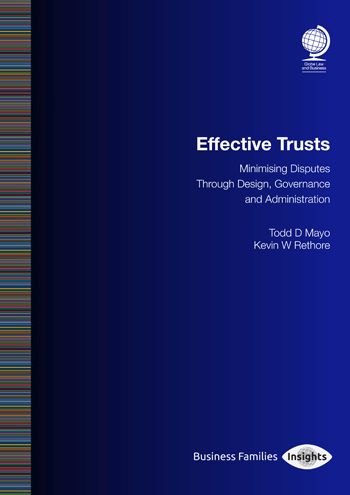We are now closed for the Christmas and New Year period, reopening on Friday 3rd January 2025. Orders placed during this time will be processed upon our return on 3rd January.

Trust disputes can be tremendously costly, in terms of legal fees, hiring experts and lost opportunity costs, as well as the costs attendant with the often emotionally charged atmosphere that can pit family members against one another. Despite the high toll, trust litigation continues to increase around the world – both in the number of matters being initiated and the amounts in controversy – as trust instruments become increasingly important vehicles in the management and transfer of wealth of various sizes.
Preventing a fire is substantially less costly than fighting one. Identifying and appreciating the potential causes of trust disputes puts settlors, trust officials and beneficiaries in the best position to prevent a dispute from developing or accelerating.
This Special Report examines the causes of trust disputes and explores the steps that settlors, trustees, beneficiaries and others can take during each stage of a trust’s lifecycle – design, execution, administration and termination – to reduce the risk of sparking a dispute. Supported by real world experience and input from leading international trust practitioners, including estate planners, general counsel and experienced trust litigators, this Special Report delves into key concepts such as:
The authors also examine the benefits of involving different perspectives, including those of experienced trust litigators, at various stages of the trust’s lifecycle, and offer practitioner insight into the measures and approaches both fiduciaries and beneficiaries should consider taking when a dispute first presents itself.
Filled with real-world practitioner guidance, perspective and insight on issues of critical importance to fiduciaries, trust officials and beneficiaries alike, this Special Report is essential reading.